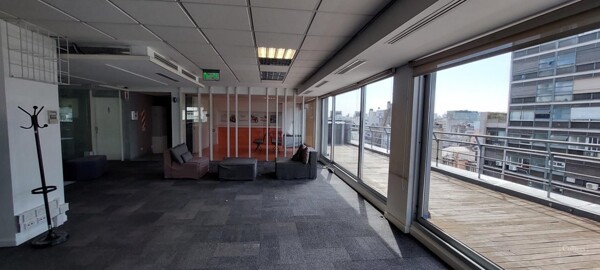
Today, the wholesale dollar closed at $1,053.2, maintaining a currency gap of 14% with the blue dollar, which is currently the most expensive option among alternative currencies. In this scenario, only two companies managed to avoid losses: Globant with 0.1% and Despegar with 0.2%. On the other hand, Argentine bonds experienced a downward trend, with an average drop of 0.5%. The country risk, measured by JP Morgan's indicator, remained at 660 points, while the Buenos Aires Merval fell by 3.5%, with the majority of stocks in the negative.
In the realm of alternative currencies, the MEP dollar increased slightly by 0.5%, reaching $1,194, while the cash with settlement rose by 0.2%, reaching $1,202. In contrast, the blue dollar fell by 0.4%, settling at $1,205. Regarding the official exchange rate with a crawling peg of 1%, in the first week of full enforcement, it increased by 2.25 pesos, in contrast to the 4.54 pesos it had risen by at the end of January. Reserves, despite the purchases made, closed the week at US$ 28.886 billion following a payment of US$ 640 million to the International Monetary Fund. Although still below US$29 billion, gross reserves increased by US$145 million this Friday, breaking a streak of three consecutive days of decline.
Internationally, in New York, the Dow Jones fell by 0.9% and the Nasdaq by 1.3%, due to unfavorable data on the US labor market. This situation influenced the amplified drop in Argentine stocks, which continue to struggle to recover from the global instability generated by the changing trade policies of the Donald Trump administration. On Wall Street, Argentine stocks fell more than 7%, reflecting negative results in global markets. In this context, Argentine bank stocks experienced significant losses, with a drop of 7.3% for Supervielle, 5.9% for Macro, and 5.8% for BBVA; while Irsa fell by 7.4% and Pampa Energía lost 6.3%.
Argentine stocks and bonds operated on the day with widespread declines amid a climate of greater pessimism regarding the possibility of an agreement with the International Monetary Fund. Meanwhile, the Central Bank continued to purchase foreign currency, acquiring a total of US$140 million during the day.













